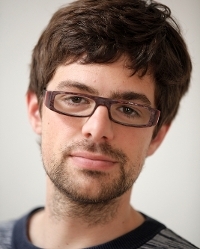Introducing: Sam de Schutter
Sam de Schutter recently started working as a PhD candidate in the ERC project 'Rethinking Disability: the Global Impact of the International Year of Disabled Persons (1981) in Historical Perspective'.

I obtained my MA in History from Ghent University in 2011. During my studies I picked up an interest in postcolonial relations between Congo and Belgium, and decided to write my thesis on Congolese people who had graduated from Belgian universities since independence. Through this study I had my first experience with doing research in Kinshasa and I quickly learned that migration is a key phenomenon in understanding this city. I decided that I wanted to know more about the city and about people’s ideas on migration to Europe, so I started an MA in social and cultural anthropology at the University of Leuven. In 2012 I was back in Kinshasa for ethnographic fieldwork on ‘migration imaginaries’ and I completed my studies in anthropology in 2013.
After my studies I started working as a teaching assistant at the history department of the University of Leuven. Teaching small groups of students and assisting them in their research projects has taught me a lot about the ins and outs of university education. Although this has been a valuable experience, I decided that I wanted to go back to doing research. That is why after two and a half years I left the University of Leuven and started my PhD at Leiden University.
As part of the ERC project ‘Rethinking Disability’, I can now further pursue my previous interests, but in a completely new way. I am still working on relationships between the so-called ‘Global South’ and ‘Global North’, but now through the lens of disability and development. As a historian and an anthropologist, I am interested in how disability is on the one hand a universal phenomenon, but how on the other hand experiences of disability also differ strongly from one society to another. I want to explore how this tension between universality and cultural contingency has shaped disability related development projects in the second half of the twentieth century. How did universal definitions of disability translate into very specific development interventions, and how did these interventions influence experiences of disability on a local level? To find the answers to these questions, I will conduct both archival research at the level of the UN’s specialized agencies, and archival and oral history research in Tanzania and Congo. These countries will serve as two case studies, to allow for a better understanding of how development projects played out on the ground.
